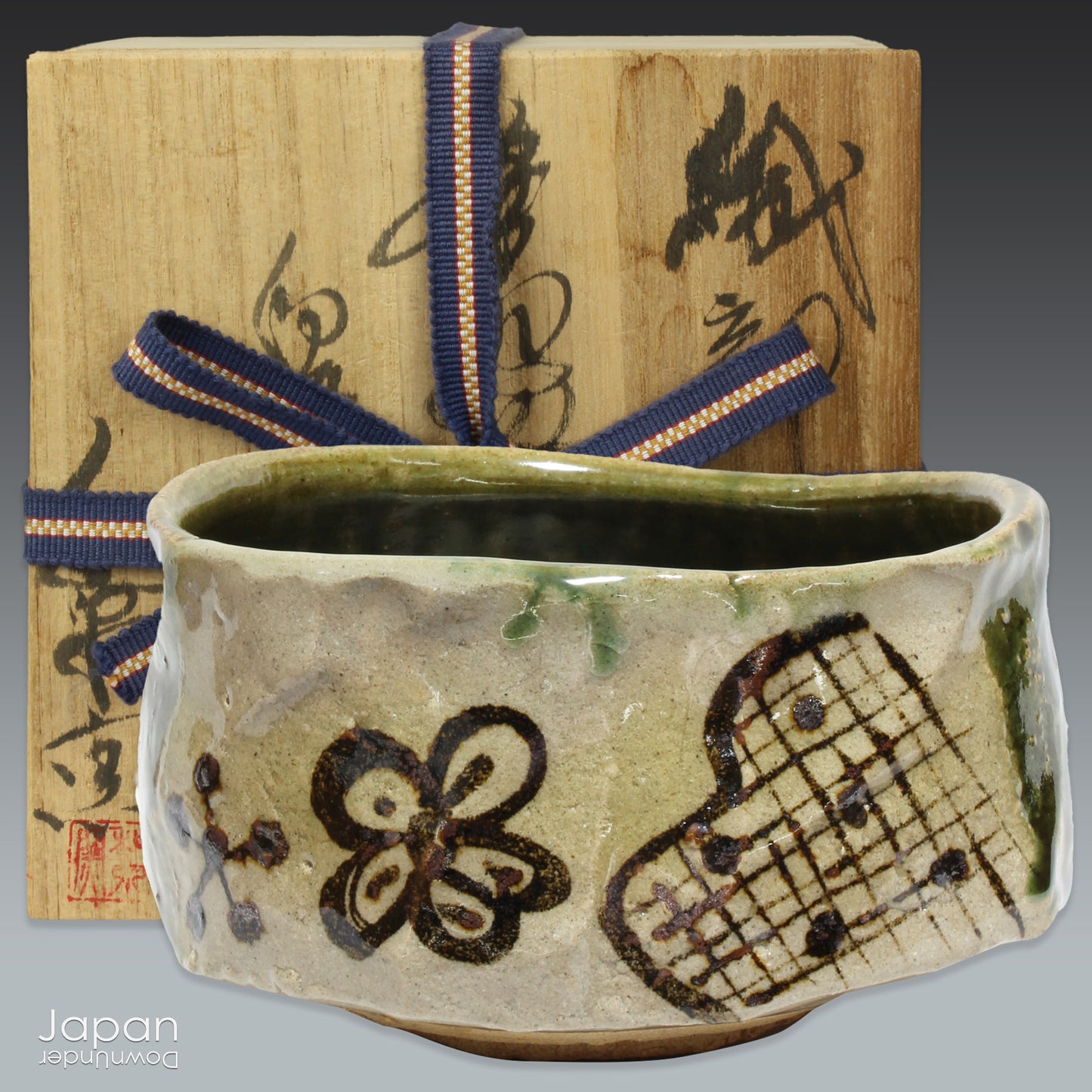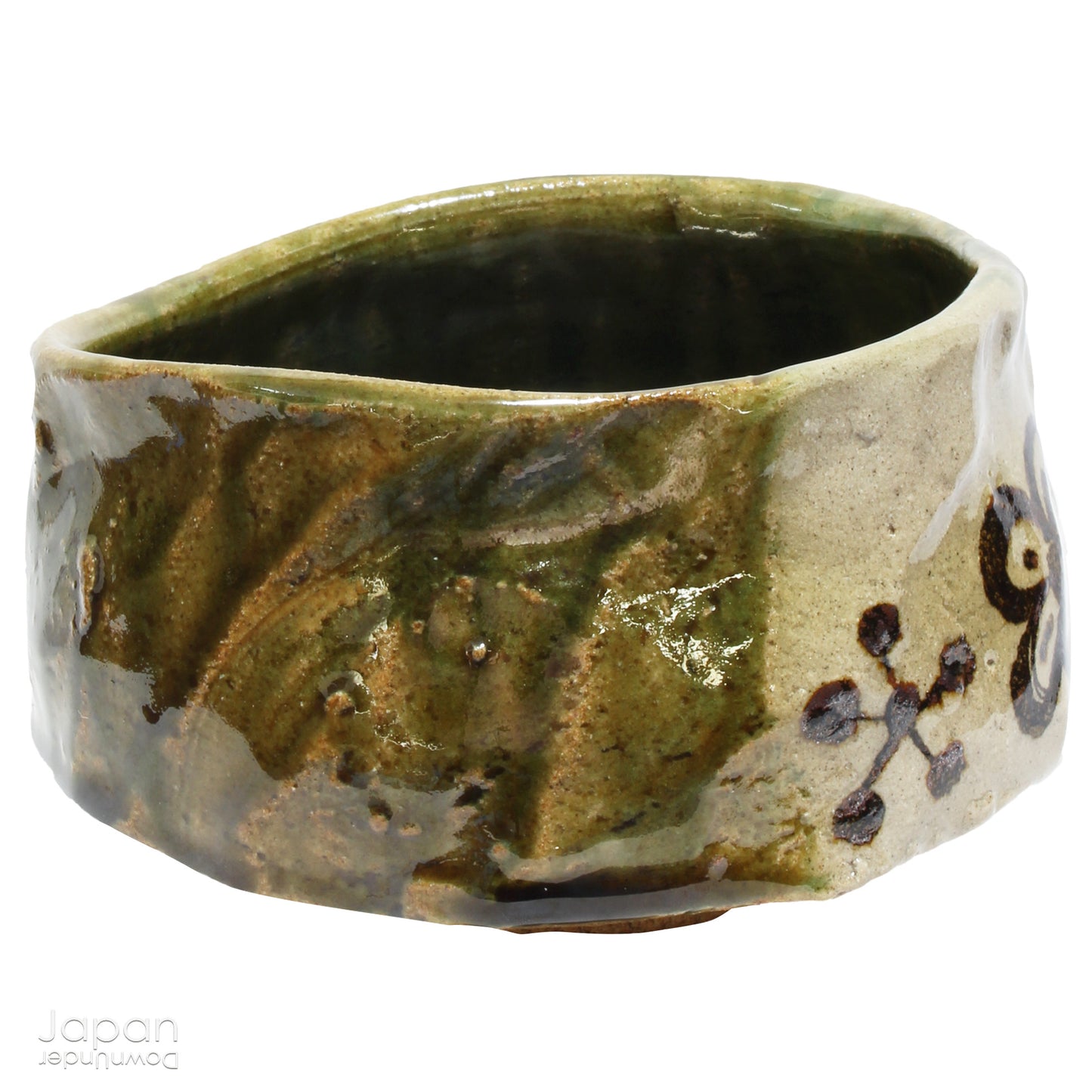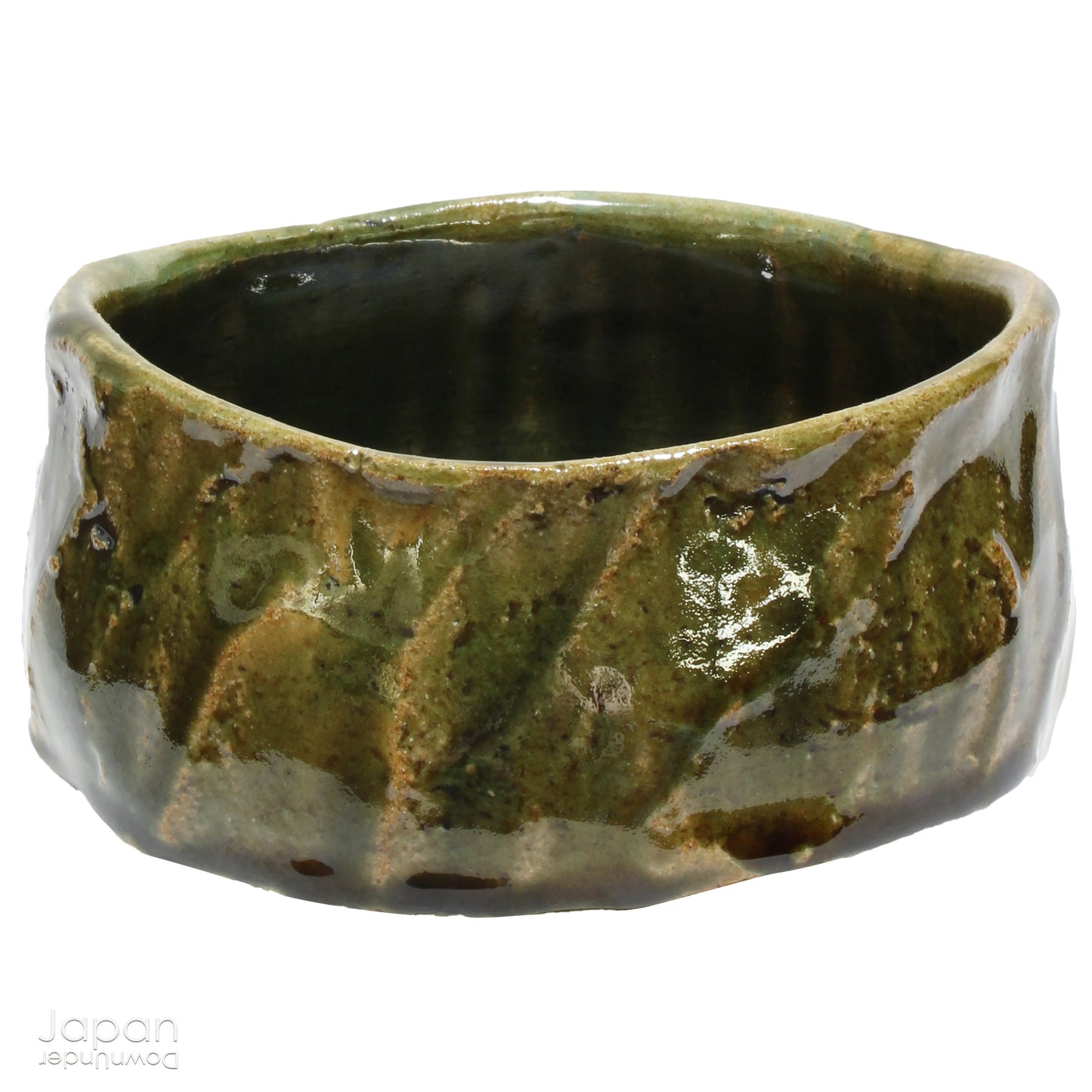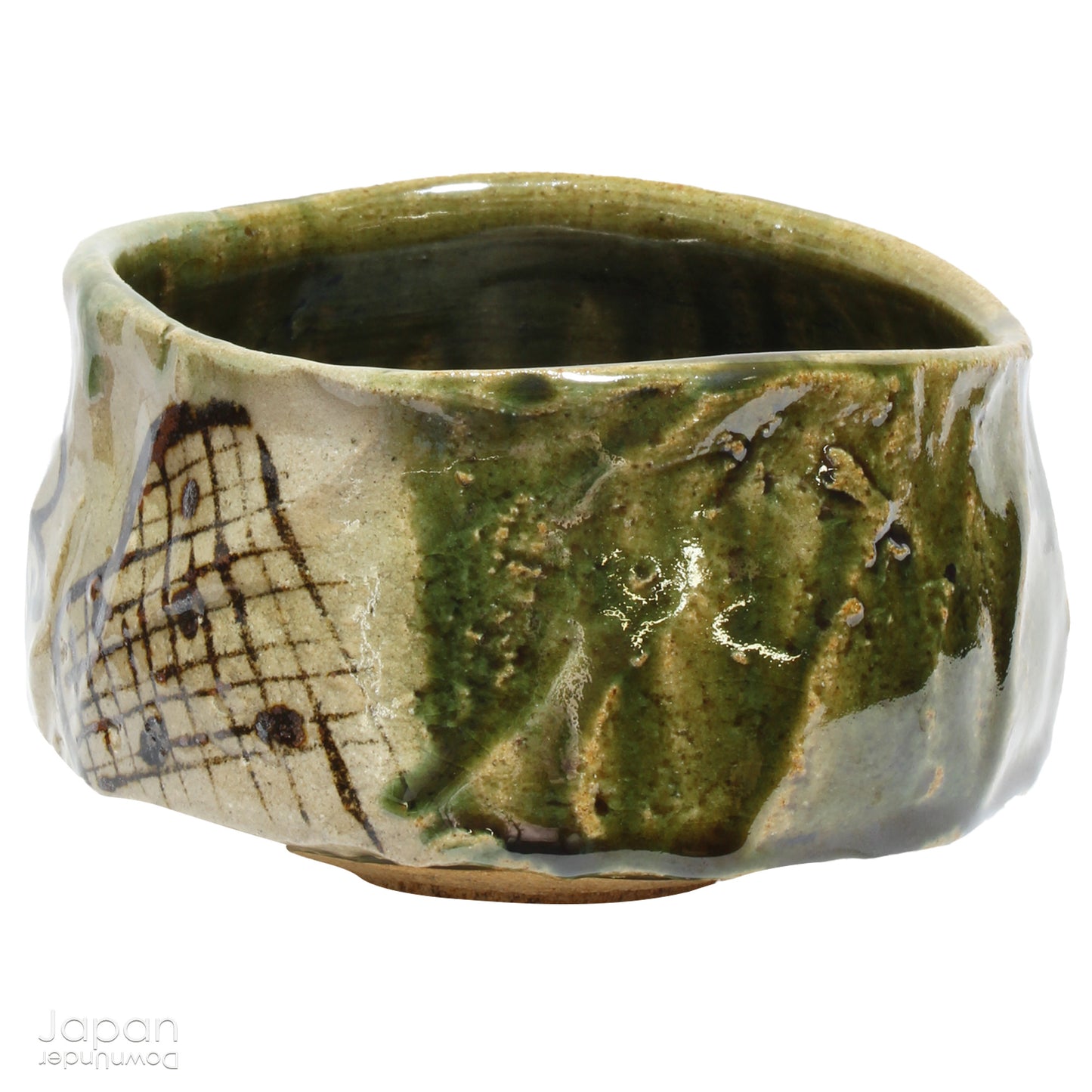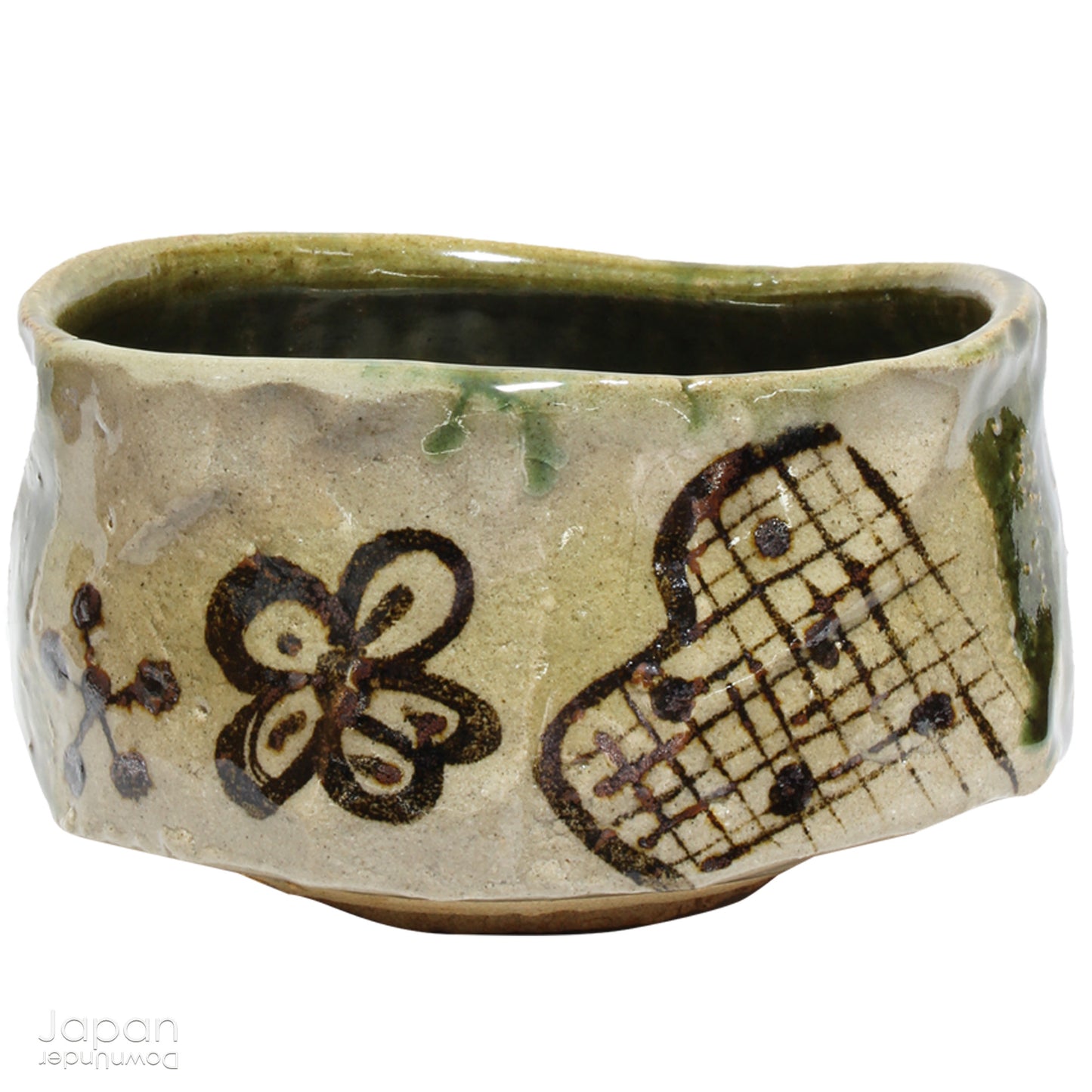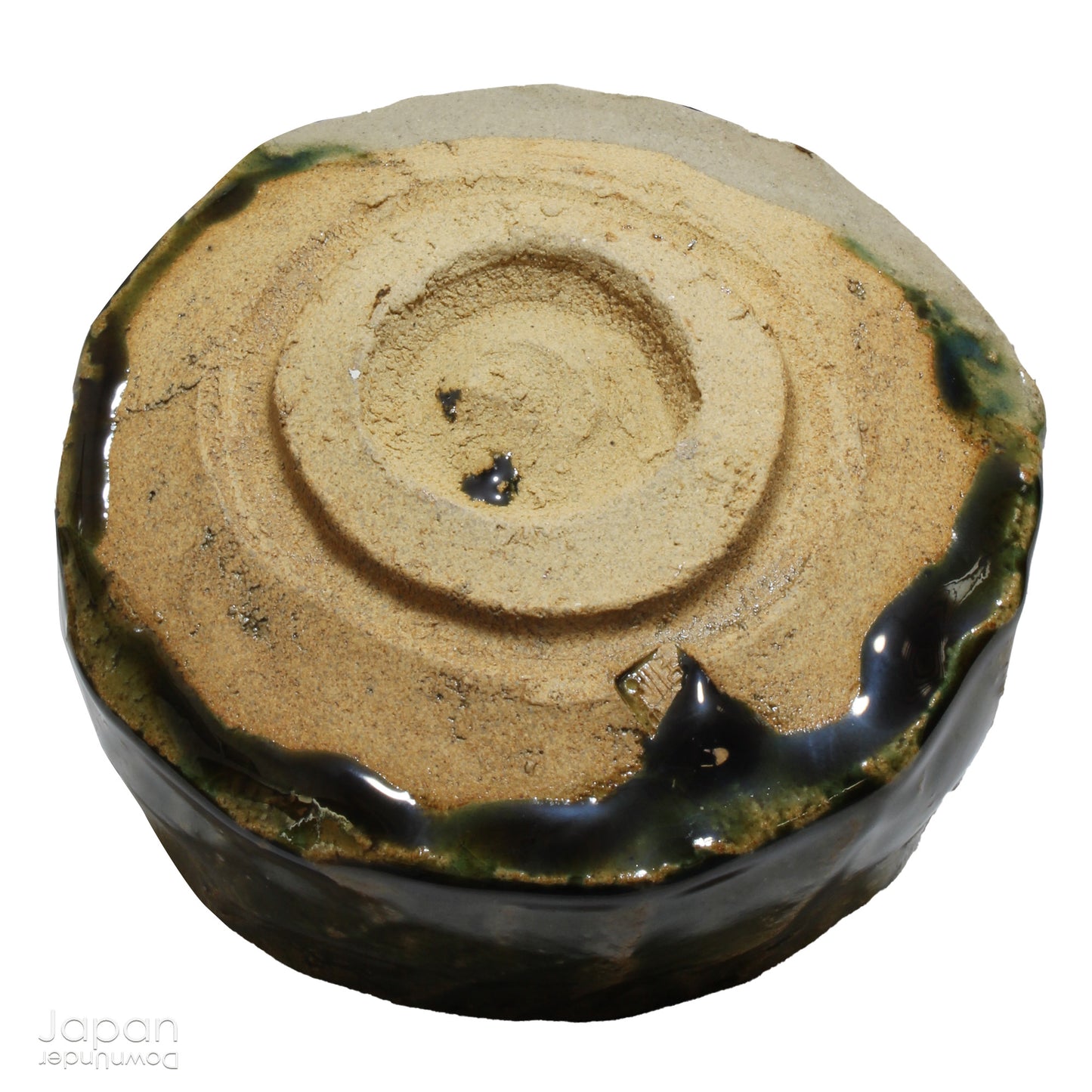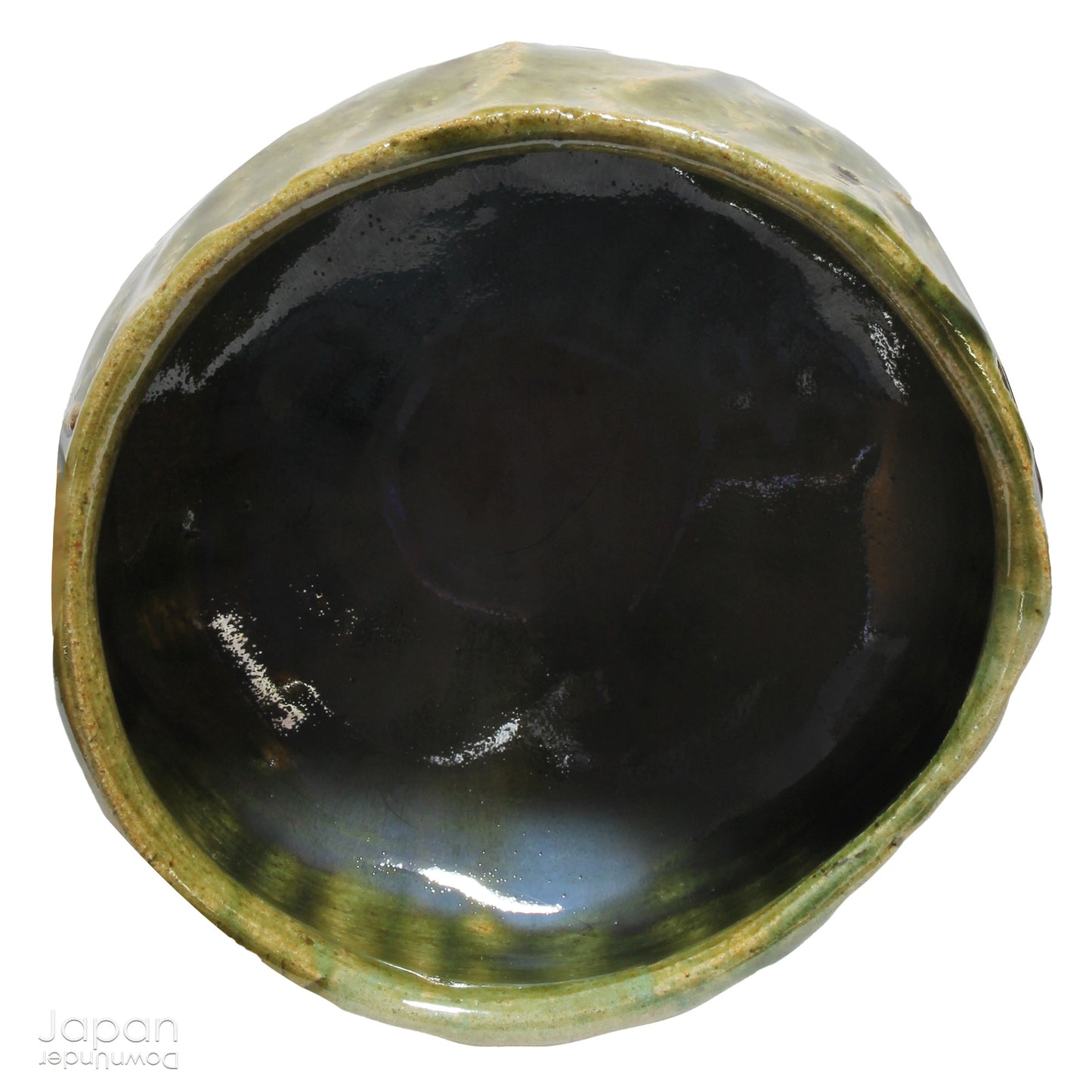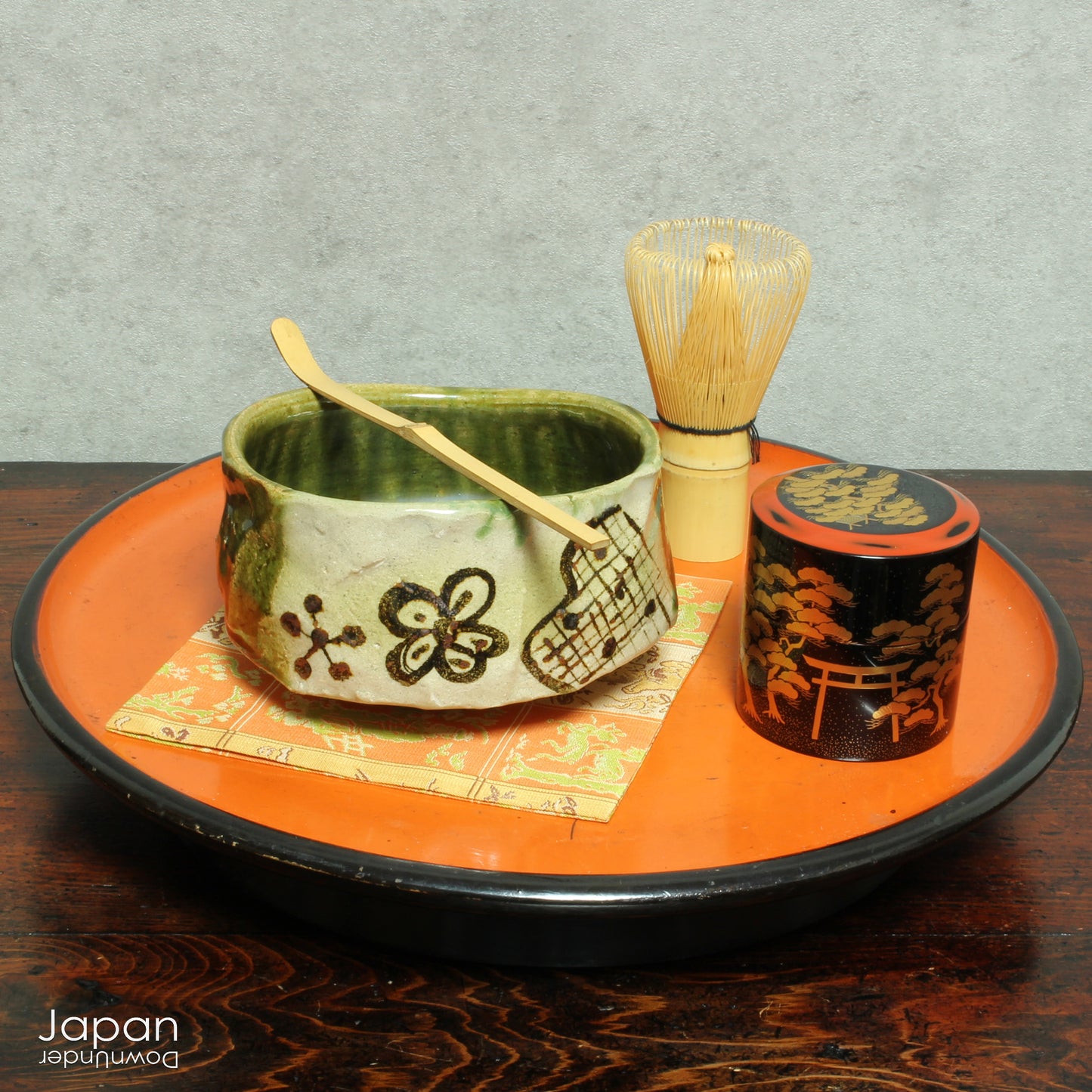JapanDownUnder
flower motif green oribe matcha chawan - artisan tea ceremony bowl
flower motif green oribe matcha chawan - artisan tea ceremony bowl
Couldn't load pickup availability
Love Japanese Style Like We Do
Immerse yourself in the art of tea with this breathtaking green Oribe ware matcha bowl. Handcrafted with delicate flower motifs and a timeless geometric design, this chawan effortlessly blends traditional elegance with natural beauty. The deep, earthy tones and thoughtful glazing make it the perfect addition to any tea ceremony, inviting you to connect with both the past and the present with each sip.
The bowl’s beige surface is adorned with striking dark brown flowers and abstract patterns, while the vibrant green glaze drips organically across its back and inner surface. Its distinctive, slightly asymmetrical shape - true to Oribe’s signature style - offers a modern, yet informal charm. A tactile ridge below the lip allows your fingers to comfortably nestle into place, creating a sensory experience that makes every tea ritual feel personal.
Crafted with care, this larger, heavier chawan fits snugly in the hands, its unique contours giving it a character all its own. Each bowl is a one-of-a-kind work of art, and over time, it will develop a rich patina from your hands and the matcha you enjoy, becoming even more beautiful with use. It’s said that a well-loved, frequently used bowl gains a deep, inviting luster that surpasses even the most expensive, untouched ones.
Signed by the artist, Izumi-Kama, this matcha bowl comes in its original wooden storage box with the artist’s name inscribed on the lid, accompanied by a yellow wrapping cloth. It is in very good vintage condition, ready to be cherished for years to come.
Whether you're an avid tea enthusiast or simply seeking a unique piece of artistry for your collection, this handcrafted chawan promises to be a beautiful companion in your tea ceremony - a vessel for not only tea but for stories and memories.
- tea bowl measures 13 cm (5.1”) in diameter x 7.5 (3”) cm tall.
- total weight 650 gm.
(listing for boxed oribe tea bowl)
SHIPPING INFORMATION
- please read our shipping notes in shipping policy.
- we use recycle packaging and wrap for safety, rather than appearance.
ABOUT OUR VINTAGE, ANTIQUE AND OTHER ITEMS
We list pieces we feel are worthy of display. There may be scratches, dents, fading and signs of wear and tear. We try to explain the condition of each item exactly, but may miss something.
Information regarding the item and it’s age is obtained from dealers and our personal research. We do our best to give you the correct information but please be aware that we cannot guarantee this information.
Please message us prior to purchase with any questions you may have about our products.
ORIBE YAKI WARE
Oribe is a visual style named after the late-16th-century tea master Furuta Oribe 1544-1615). It’s most often seen in pottery, but can be found in textiles and paintings. Oribe was not an actual potter, but rather an art director or designer. He embodied the spirit of wabi tea so completely that he was able to give it a new form and unique vision.
Some Oribe utensils and functional objects were made in standard ceramic shapes and forms. Others, however, were deliberately deformed by a distortion or imbalance to create a new aesthetic sensibility.
Intentionally distorted chawan, decorated with green and brown glazes and abstract designs, created shock and excitement when they first appeared on the tea ceremony scene in Kyoto. The motifs, taken from nature and decorative textile patterns, were ground-breaking in their bold informality and they were also entirely Japanese. It was this recognition of a new Japanese aesthetic that caused tea devotees to cherish oribe ware. Its ability to capture something of the artistic and spiritual soul of Japan quickly spread throughout the country, and its mass popularity continues to this day.
Oribe ware is produced in the Mino area (Aichi and Gifu). Easily recognisable by it’s distinctive green glaze, Oribe yaki has four main types; E-Oribe (patterns done with iron underglaze), Kuro-Oribe (an almost black, dark green glaze),Ao-oribe ( light green glaze) and Aka-Oribe (incised patterns covered with various glazes).
CHAWAN
The chawan is a bowl used for preparing and drinking tea, and originated in China. The earliest chawan in Japan were imported from China between the 13th and the 16th centuries. Until the 15th century in Japan, tea was drunk mainly from a variety of Chinese tea bowls which the Japanese called ‘Tenmoku Chawan.’ This type of Chinese chawan was the preferred tea bowl for the Japanese tea ceremony until the 16th century. The Japanese term ‘tenmoku’ is derived from the name of the Tianmu Mountain, where Japanese priests visited Chinese temples and acquired these tea bowls to bring back to Japan.
By the end of the Kamakura period (1185–1333), as the custom of tea drinking spread throughout Japan and the Tenmoku chawan became desired by all ranks of society, the Japanese began to make their own copies in Seto (Aichi Prefecture). The Japanese particularly liked the bowls with a tapered shape, so most Seto-made Tenmoku chawan had this shape.
With the rise of the wabi tea ceremony in the late Muromachi period (1336–1573), the Ido chawan, kinds of Korean bowls mainly used for rice, also became highly prized in Japan. Korean bowls were a favourite of tea master Sen no Rikyū because of their rough simplicity.
Over time and with the development of the Japanese tea ceremony as a distinct form, local ceramics became more highly prized and developed. Around the Edo period, the chawan was mostly made in Japan.
The connection between ceramics and tea-drinking has a rich, culture. The qualities of handmade ceramic vessels have much in common with the virtues revered by the Japanese tea ceremony. Developing into a true art form, the ceramics and the simple act of tea drinking became symbolic in Japan of an appreciation of nature, simplicity and imperfection, and later as a higher art, advocating harmony and balance.
Tea bowls are never perfectly round, for they must fit the hands comfortably. A chawan is somewhat like a person. It has its own character and given time its own stories to tell. The bowl’s spirit comes from its maker and the people who have held it and enjoyed drinking tea from it.
Share
